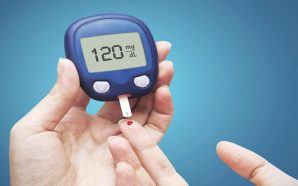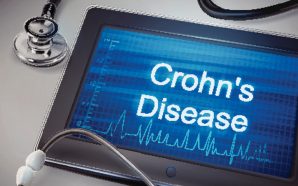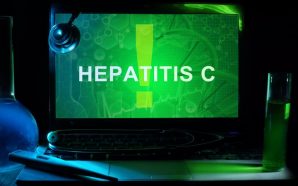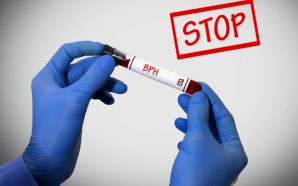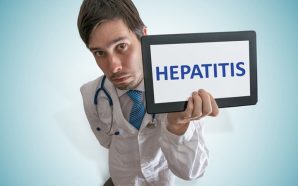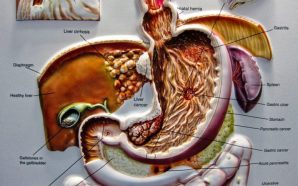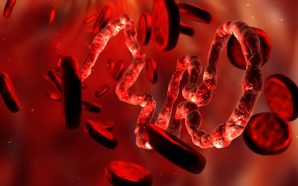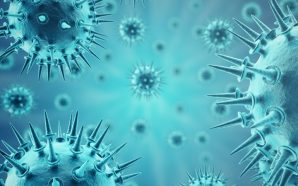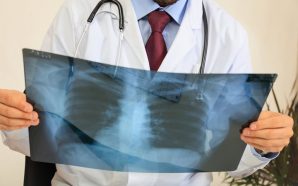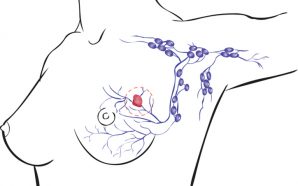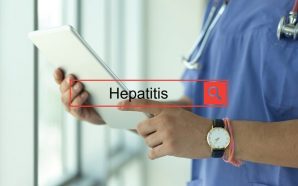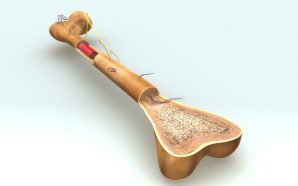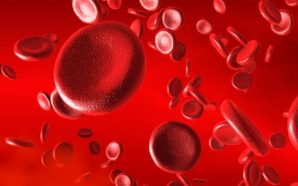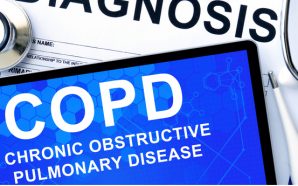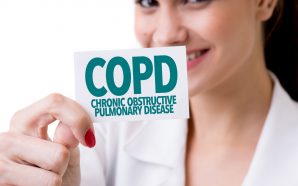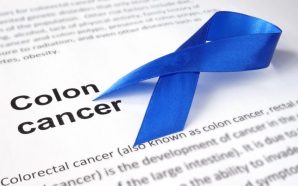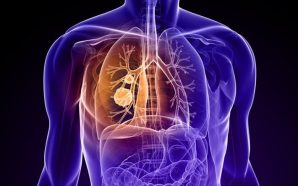-
AFib—known medically as Atrial Fibrillation—is a condition that affects the heart, causing it to beat irregularly. More specifically, the upper chambers of the heart will ‘quiver’ instead of pumping effectively. This is caused by the abnormal firing of electrical impulses. Although not always the case, people suffering from AFib...
-
Many health professionals believe Crohn’s disease belongs to a group of digestive conditions called Inflammatory Bowel Disease (IBD). Crohn’s disease is considered an autoimmune disease that is incurable. Symptoms include weight loss, fever, fatigue, loss of appetite, rectal bleeding, persistent diarrhea, abdominal cramps and pain, sensation of incomplete evacuation,...
-
Total hip replacement, which is also known simply as hip replacement or hip arthroplasty, is a long-term surgical treatment for reducing your hip joint pain and increasing your hip’s range of motion. Hip replacements are performed by orthopedic surgeons, physicians who specialize in treating diseases and conditions relating to the...
-
An overview of Hepatitis C Hepatitis C is a disease that is caused by a virus in which affects your liver. Over time it can cause permanent liver damage, liver cancer, and even liver damage. Most people are unaware that they have hepatitis C until it has already caused...
-
Going to the doctor for a prostate exam can cause men quite a bit of anxiety and dread. Unfortunately, this may cause men to put off or completely avoid this potentially life-saving procedure. Reasons for shunning a prostate exam may include feelings of embarrassment; fear of physical discomfort; or...
-
It is still unknown exactly what causes most cases of pancreatic cancers. However, some risk factors have been linked to an increased chance of being diagnosed with the disease. Recent research has shown that some of these risk factors, such as smoking or heavy drinking, can affect the DNA...
-
Miscarriage occurs when a pregnancy is suddenly lost before the 20th week. Between 10% and 20% of confirmed pregnancies end in miscarriage, so it is important to be able to recognize the signs and symptoms if it happens to you. Warning Signs of Miscarriage If you start to experience...
-
Hepatitis C is a viral disease that causes the functionality of the liver to decrease, leading to its inflammation. The disease affects around 4 million people each year in the United States alone. Approximately 75% of this population suffers from Hepatitis C Genotype 1. Chronic hepatitis C may lead...
-
Pulmonary Fibrosis (PF) is a disease which occurs when lung tissue is damaged or scarred. This causes the tissue in the lungs to become thick or stiff. It is, therefore, more difficult for the oxygen inhaled into your lungs to be absorbed into the blood. This can result in...
-
The most dangerous part of melanoma is its ability, in later stages, to spread (or metastasize) to different parts of the body. Metastatic melanoma, also known as Stage IV melanoma, is the stage where melanoma cells of any kind (mucosal, cutaneous, or visual) have spread through the lymph nodes...
-
The flu shot is a vaccination against the seasonal flu. It is delivered each fall to doctor’s offices and pharmacies. The vaccination actually comes in two forms, a shot, and a nasal spray. The traditional vaccine offers antibodies against three types of the influenza virus, two influenza A variations...
-
Deep vein thrombosis is a condition that occurs when a blood clot forms in one or more of the deep veins in your body, usually in the legs. This condition sometimes develops when you don’t move for a long period of time, such as after surgery or an accident when you...
-
Hepatitis C Information Hepatitis C is a liver disease that causes the organ to be inflamed. This inflammation is red swelling caused by injury or infection. This inflammation can cause organs to stop working properly. The liver is a very important organ. It has a lot of functions such...
-
Also referred to as a spontaneous abortion, a miscarriage is defined as the sudden loss of a fetus during the early stages of pregnancy—usually before the 20th week. According to the American Pregnancy Association, approximately 10% to 25% of all clinically confirmed pregnancies will end in miscarriage. The causes of miscarriage...
-
Lung cancer is a cancer that begins in lungs. The lungs are located in the chest and are responsible for taking in oxygen and removing carbon dioxide. Unfortunately, when cancer grows in these organs, it is a very serious disease. In fact, lung cancer is the leading cause of...
-
Allergies are caused by a hypersensitive immune system that flags an otherwise harmless substance in the environment as if it were a disease-causing organism. When your immune system overreacts in this way, it sets off a chain of events with a goal of saving your life from a harmful...
-
Hepatitis C is an infection that occurs in the lungs. It is transmitted by contact with an infected person’s blood and is easily spread. Hepatitis C impacts the liver, and over time, it can lead to serious liver scarring (cirrhosis), liver cancer, and even liver failure. Some individuals with the hepatitis C...
-
Pulmonary fibrosis can be tough to live with. It is a disease that affects the way you breathe, which may make it feel difficult to manage. The disease is typified by damaged or scarred lung tissue, which then hardens or becomes stiff. This means that it is harder for oxygen...
-
Cancer is the malignant growth of body cells. Breast cancer affects the mammary tissues and is ranked second killer form of cancer in women after lung cancer. Although it affects men it is not common and only a small number get affected. However, with the laid out measures to...
-
Dealing with cancer is difficult, but when the verdict is pancreatic cancer, the survival rate is only 25 percent for the first five years after the diagnosis. Like all other cancers, staging occurs from the beginning. The oncologist will base the stages upon various factors, such as if the...
-
Deep vein thrombosis, commonly abbreviated “DVT,” is a condition that occurs when a blood clot forms in one or more of the deep veins in your body, usually in your legs. DVT is a serious condition because if a blood clot in your vein breaks loose, it can travel through...
-
Hepatitis C is a contagious virus that is transmitted through contact with infected blood. This virus affects the liver of an infected individual. Over time, hepatitis C can cause significant damage to the liver as well as lead to the development of cancer. Many people who are infected with...
-
Also referred to as a spontaneous abortion, a miscarriage is the sudden loss of pregnancy before the 20th week. However, it occurs most often before the 12th week. About 15% to 20% of all confirmed pregnancies will result in miscarriage, but as many as 75% of all conceptions will end up as miscarriages. The...
-
There are three vital things you should know about lung cancer: it is an equal opportunity “killer;” non-small cell lung cancer (NSCLC) is the most common type and grows and spreads more slowly than other affected cells; and recent findings show that lung cancer survival rates have improved. Therefore,...
-
Diabetes is a condition where the amount of sugar in your blood is in excess because your pancreas doesn’t have enough to regulate the glucose level entering your blood cells or the produced doesn’t function well. You can manage diabetes well by healthy eating habits combined with regular exercises...
-
Hepatitis C is an infection caused by the hepatitis C virus. It is spread by contact with an infected person’s blood and is extremely contagious. In fact, hepatitis C is approximately seven times more infectious than HIV. It affects the liver, and with time it can lead to cirrhosis...
-
Pulmonary Fibrosis (PF) is a lung disease which presents many problems to patients. Due to the scarring and stiffening of lung tissue associated with PF, patients may find that the disease is affecting the way they breathe. This is because the damaged lung tissue makes it harder for inhaled...
-
Hormones like estrogen and progesterone are chemicals produced by glands in the body. Normally, these hormones help regulate body cycles, like menstruation. However, sometimes these same hormones can cause cancer to grow. The pathologist will perform tests on the breast cancer cells to determine if they have receptors that feed...
-
The pancreas is a six-inch-long organ located behind the lower part of your stomach. Its function is to secrete the hormones and glucagon that help regulate sugar metabolism and enzymes that aid digestion. When the hormones are not working properly, diabetes is often the result. Pancreatic cancer occurs when...
-
Deep vein thrombosis (DVT) occurs when a clot forms in the deep veins, usually of the leg. You may notice swelling or pain in the calves, or there may be no symptoms at all. Although these may seem mild, DVT is a serious medical condition for which experts recommend immediate...
-
Chronic obstructive pulmonary disease, commonly known as COPD, refers to a chronic inflammatory disease which causes an obstructed airflow from the lungs. It is caused by a long-term exposure to particulate matter or irritating gases, more so from cigarette smoke. Individuals with COPD are usually at an increased risk...
-
Gum disease is a progressive infection in your gums and surrounding teeth and bones. Although the infection can occur at any age, it is most common among adults. If left untreated, gum disease can cause serious destruction to your teeth, gums, and bone. There are three main stages of gum disease....
-
Hepatitis C is an infection that causes inflammation of the liver. One of the main issues with Hepatitis C is that many times the individual does not even realize that they have the disease until the damage to the liver is irreversible. Hepatitis C is spread from person to...
-
Colon Cancer is the third most common cancer in men after lung and prostate cancer according to the reports from the National Cancer Institute. The reports also find it to be the fourth most common cancer in women after lung, breast and cervical cancer. The symptoms are normally very...
-
Multiple Myeloma is a cancer which develops in the plasma cells of bone marrow. Plasma cells are a type of white blood cell responsible for the production of antibodies which target and attack germs found within the body. However, when cancer develops inside of a plasma cell, the cell...
-
Hemophilia is a medical condition which occurs when the body does not produce enough clotting factor in the blood. This means that the blood is unable to clot, which causes excessive bleeding, either inside or outside the body. There are two types of clotting factor that may be missing...
-
Once a person is determined to have a malignant tumor or the diagnosis of breast cancer, the healthcare team will determine staging to communicate how far the disease has progressed. Determining the stage helps to determine the best way to contain and eliminate the breast cancer. Staging is based...
-
The pancreas is the organ that is responsible for delivering enzymes to the body that are essential for digesting food and metabolizing sugar. Cancer of the pancreas occurs when the tissues of the organ are overtaken by harmful tumors that inhibit the way the pancreas functions. Even when pancreatic...
-
Deep vein thrombosis is a condition that occurs when a blood clot forms within one of the veins deep within your body, usually in the legs. The biggest danger of deep vein thrombosis is that the blood clot could break off and travel to your lungs, leading to pulmonary embolism,...
-
Chronic obstructive pulmonary disease, also known as COPD, is a progressive disease that usually makes it difficult to breathe. “Progressive” simply means that this illness gets worse with time. COPD might cause coughing which produces large amounts mucus, wheezing, chest tightness, and shortness of breath. Cigarette smoking is currently the...
-
Sex reassignment therapy (SRT), also called gender reassignment, is a term used to describe many different things, including sex reassignment surgery to modify primary sex characteristics, hormone replacement therapy to alter secondary sex characteristics, and other procedures to alter appearance. Reasons to Undergo SRT Individuals who choose sex reassignment...
-
COPD defined Have you ever become out of breath walking a few meters? Or wanted to try out for the hockey team but were afraid of becoming a panting outcast? Want to play hopscotch with your kids but can’t manage more than a few jumps without finding yourself absolutely...
-
Colon cancer, or colorectal cancer, involves the growth of one or more tumors in the large intestine and rectum. As colorectal cancer is both preventable and treatable, it is important to recognize the symptoms: A change of bowel habits Blood in the stool Diarrhea, constipation, or a feeling that...
-
Multiple myeloma is a type of cancer which is formed by malignant blood plasma cells. These cells are responsible for producing the antibodies which make up the body’s defense arsenal in the immune system. These plasma cells are found in the fleshy center of bones – the bone...
-
If blood moves too slowly between your veins, it can cause a buildup or clump of blood cells called a clot. When a blood clot forms in a vein deep within your body, a doctor calls it “deep vein thrombosis (DVT)”. DVT almost always occur in the lower-leg, thigh...
-
General Crohns disease information shows that Crohns disease can occur in any part of the digestive tract and is a chronic inflammatory disease process. The exact causes aren’t known but there appears to be a genetic component. The original trigger may be a reaction to a virus or bacteria...
-
Lung cancer is cancer that begins in the lungs. The lungs are located in the chest and are responsible for taking in oxygen and removing carbon dioxide. Unfortunately, when cancer grows in these organs, it is a very serious disease. In fact, lung cancer is the leading cause of...
-
Rheumatoid Arthritis is a chronic disorder resulting from an inflammation of the membranes or tissues that line the joints, typically in the hands and feet, that generally develops in an individual between the ages of forty and sixty. Over time, rheumatoid arthritis can destroy the cartilage, ligaments, tendons, and...
-
The symptoms and signs of Chronic Obstructive Pulmonary Disease (COPD) include a heavy wheezing cough or a cough that brings forth large amounts of mucus (often called smoker’s cough); shortness of breath, especially with sports and chest tightness. Some of the symptoms and signs of COPD are identical to...
-
About one out of eight American women develop breast cancer at some point in her life. Even faced with such scary statistics, doctors still find it hard to say what exactly causes cancer in a person, how and why it starts. In many cases, the prognosis is optimistic, but...








